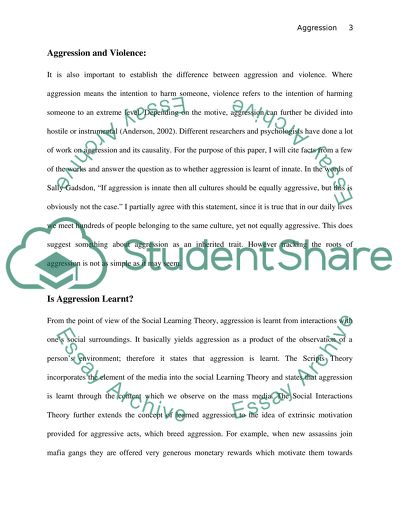Cite this document
(“Discuss weather or not aggression is learnt with reference to research Essay”, n.d.)
Retrieved from https://studentshare.org/environmental-studies/1417989-discuss-weather-or-not-aggression-is-learnt-with
Retrieved from https://studentshare.org/environmental-studies/1417989-discuss-weather-or-not-aggression-is-learnt-with
(Discuss Weather or Not Aggression Is Learnt With Reference to Research Essay)
https://studentshare.org/environmental-studies/1417989-discuss-weather-or-not-aggression-is-learnt-with.
https://studentshare.org/environmental-studies/1417989-discuss-weather-or-not-aggression-is-learnt-with.
“Discuss Weather or Not Aggression Is Learnt With Reference to Research Essay”, n.d. https://studentshare.org/environmental-studies/1417989-discuss-weather-or-not-aggression-is-learnt-with.


